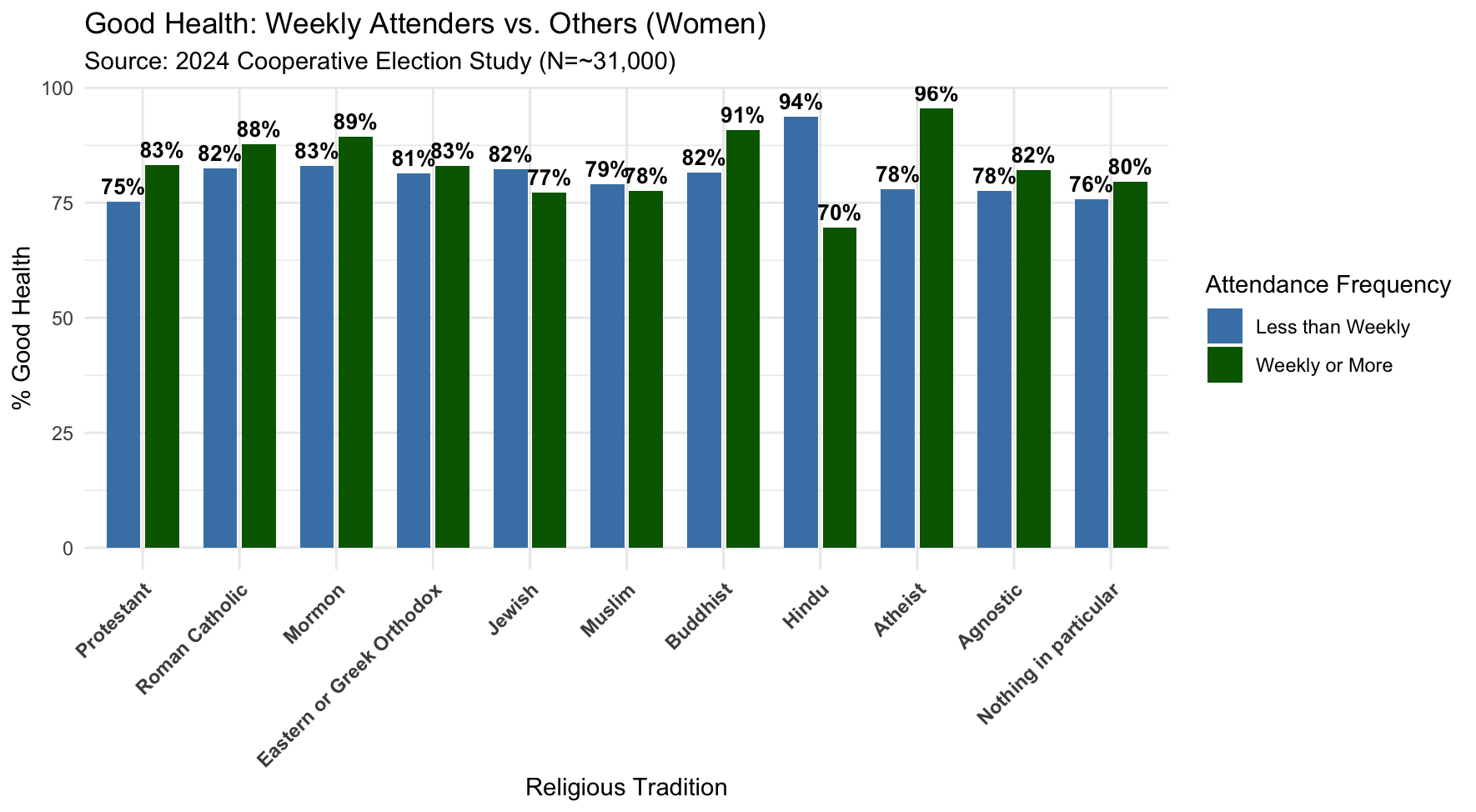-
•
•
7 responses
The holiest service you perform, the kind of service Jesus asks of those who would be his disciples, will not be rewarded with success, respect, or even a lot of happy feelings. That was never part of the bargain, and you should be aware of that in advance. Read More
-
•
•
2 responses
In the turbulent aftermath of Joseph Smith’s death, the Saints were forced to choose sides, and history has largely been written by those who followed Brigham Young. But what about the men who didn’t? William Marks is perhaps the most significant “forgotten” figure in this drama. As President of the Nauvoo Stake, he held a position of immense ecclesiastical authority—arguably outranking the Quorum of the Twelve in local matters—and stood as Emma Smith’s staunchest ally. Yet, because he eventually helped found the Reorganized Church (now Community of Christ), he is often reduced to a footnote in Latter-day Saint history. A… Read More
-
•
•
18 responses

Yes, I know nobody perfectly fits these stereotypes. Once upon a time Bill was a 7th-generation member who loved his Mormon community. His grandfather had been a [insert high Church or BYU or Utah business culture position]. For him Church participation wasn’t much of a sacrifice, but rather was a part of the waters he swam in, and participation was natural to him growing up. His life was more or less the same whether there were actual gold plates or not. He loved the fact that in his super stable, large Utah ward there was always somebody with a casserole… Read More
-
•
•
4 responses
While we claim that Church is worship, I think Church members often talk about Church like it is entertainment. I hear things like “I got bored”, “I didn’t like that talk,” “What they said was wrong,” etc. If you are worshiping God at Church, why do these questions matter? Is the presentation, good or bad, why you came to Church? If you are worshiping, why would you allow the inabilities of speakers or teachers keep you from that? Read More
-
•
•
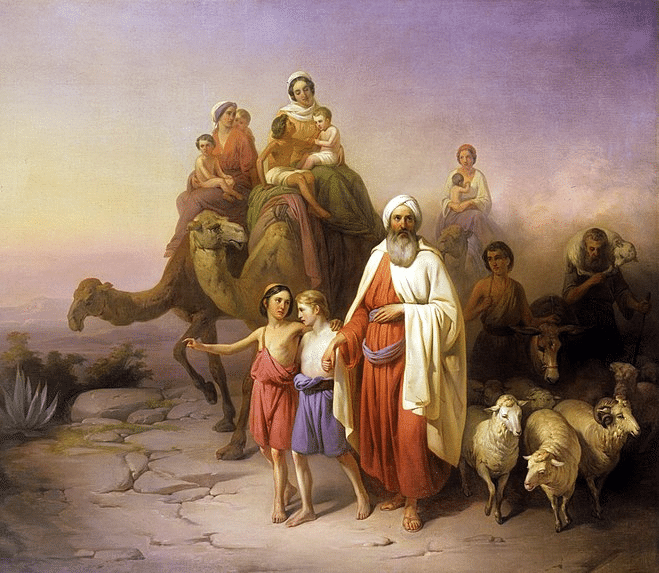
Since the Old Testament is so long, each lesson covers much more material, making it much harder to have overall themes for the lesson. As a result, each lesson tends to be more episodic, covering a broad range of topics. This lesson is like that, covering everything from righteous desires, to Melchizedek, to tithing. I don’t think any teacher should try to cover it all in one lesson. Since most gospel topics fit under the theme of righteousness, these topics are grouped under that theme, along with the story of Abraham and his family. Read More
-
•
•
2 responses

Those who have followed Times and Seasons for a while may know that I like talking about art from time to time. The Certain Women Art Show is an important artistic institution for its ability to transform complex theological concepts into immersive visual dialogues, and their latest exhibition, Brave Like Eve, currently on display at the Bountiful Davis Art Center (January 14 – March 27, 2026), in Bountiful, Utah, is a fantastic example of this. By bringing together over 100 Latter-day Saint women artists, the show does more than simply illustrate a scripture story; it performs significant theological work, reframing… Read More
-
•
•
7 responses

As the Church grows larger in Sub-Saharan Africa I suspect that the issue of how to handle polygamous families will become increasingly salient. An irony of ironies, of course, is that in 2026 the Community of Christ is more polygamy accommodating than the Church of Jesus Christ of Latter-day Saints, since they allow polygamists to convert as long as they recognize the Church’s doctrine of monogamy and do not take additional spouses, whereas the Church of Jesus Christ of Latter-day Saints requires polygamists to essentially become monogamists by divorcing their other wives. While simply requiring polygamous converts to choose a… Read More
-
•
•
6 responses
While we claim that Church is worship, I think Church members often talk about Church like it is entertainment. I hear things like “I got bored”, “I didn’t like that talk,” “What they said was wrong,” etc. If you are worshiping God at Church, why do these questions matter? Is the presentation, good or bad, why you came to Church? If you are worshiping, why would you allow the inabilities of speakers or teachers keep you from that? Read More
-
•
•
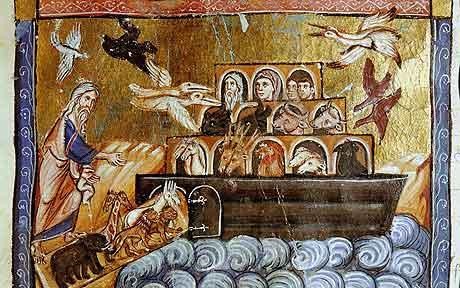
The story of Noah and the flood has often led to difficulties, especially between those who take the story literally and those who see it more metaphorically. For those who are trying to decide between a literal interpretation and a metaphorical interpretation (as if this were a binary question that has to be decided one way or another), my introduction of poetry here then doesn’t make the question any clearer, since poetry tends to make even the most concrete ideas into metaphor. I think both interpretations are ok — especially since many metaphors have more impact when we treat them… Read More
-
•
•
11 responses
Mystery seeking is an essential part of Mormonism’s founding narratives. Part 2 of a three-part series beginning with What Can We Learn from Visions of Glory? Speculating about the afterlife is integral to who we are as Latter-day Saints. The Church’s proselytizing program puts questions about “our Heavenly Father’s plan” in the center of its curriculum. In part 1 of this short series, I introduced Visions of Glory—a book whose protagonist, “Spencer”, depicts elaborate visions about the spirit world and the end-of-times, and is suspected to have inspired recent Mormon ne’er-do-wells. The head-scratcher is that Spencer appears to have been… Read More
-
•
•
11 responses

Hale, Adrian. “Muskets” and Mormons: the violent metaphor which “backfired.” Theology & Sexuality (2025): 1-18. This paper uses Speech Act Theory (SAT) to analyze a senior Mormon [The Church of Jesus Christ of Latter-day Saints is more commonly known by the names: Mormons, the LDS, the Latter-day Saints, or Mormon Church. For brevity, this paper will alternate between these more familiar names.] leader’s sermon in which the metaphor of “muskets” appeared prominently. The metaphor targeted the Church’s LGBTQ+ community, triggering a “firestorm” of responses [Faith Matters, “Elusive Unity at BYU”.]. While Mormons are typically regarded as religious conservatives, negative responses… Read More
-
•
•
3 responses
To most Latter-day Saints, J. Golden Kimball is a folklore figure—the “swearing apostle” (who was actually a Seventy) whose colorful language and irreverent pulpit humor provide comic relief in a culture that often takes itself very seriously. But who was the man behind the myths? In a revealing new interview over at the Latter-day Saint history blog, From the Desk, biographer Andrew Kimball peels back the caricature to reveal a man of profound contradictions: a leader who battled severe depression (“the depths of hell”), financial ruin at the hands of a fellow General Authority, and a stalling career in the… Read More
-
•
•
9 responses

As Latter-day Saints we often refer to “disciple-scholars,” or people who embody the idea that the glory of God is intelligence, and for whom their scholarship is a form of discipleship. While there are a handful of Latter-day Saint cases people invoke (most classically Hugh Nibley, Richard Bushman, or Henry Eyring), I thought I’d step outside the Latter-day Saint tradition to brainstorm a broader list. I suspect the golden era of disciple-scholarship was the 17th and 18th century, when nearly every revolutionary scientist was deeply motivated by the idea that they were exploring the handiwork of God (Newton, Leibniz, Pascal).… Read More
-
•
•
4 responses
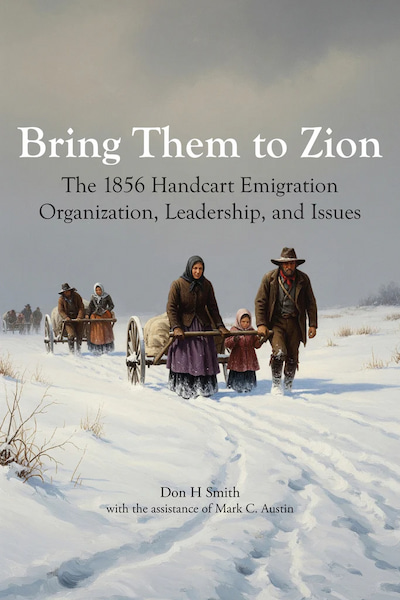
Latter-day Saint history has no shortage of narratives concerning the Willie and Martin handcart companies. For many, the 1856 emigration is the ultimate “morality play” of the Restoration—a story of faith under fire and the high cost of the gathering. Yet, while the spiritual lessons of the trek have been well-plowed, the gritty logistical mechanics of why the tragedy occurred have often been obscured by hagiography or simplified blame. In Bring Them to Zion: The 1856 Handcart Emigration Organization, Leadership, and Issues (Greg Kofford Books, 2025), Don H. Smith, with the assistance of Mark C. Austin, provides a meticulously researched… Read More
-
•
•
2 responses
Recently I explored the writings of a Mormon literary thinker little-known among Church members today, Wayne Booth. In The Company We Keep, Booth proposes that human beings not only learn by induction and deduction, but by what he calls “coduction” — the discovery of knowledge in conversation with others. This is a cornerstone of how we are supposed to learn at Church, in our Sunday School, Priesthood and Relief Society classes. It is also a key element to how we are supposed to learn in counsels. It requires that each person in a class, or in a counsels, both listen… Read More
-
•
•

For me, this lesson (to be taught February 8th — I work 2 weeks ahead) might be one of the most important lessons of the whole Come Follow Me cycle. The example of Enoch and the idea of Zion, our utopian ideal, lead to important questions about what we do today and how we organize our society. Yes, it is not possible to actually achieve a utopia — but I think we talk about utopias because they lead us to think about what we are trying to reach, and how to get there. So, especially today, shouldn’t we ask in… Read More
-
•
•
8 responses
The Salt Lake Temple is the supreme architectural icon of the Restoration, a stone fortress that took 40 years to complete. We know the dates (1853–1893) and the legends (buried foundations, granite hauled by oxen), but we rarely ask the human questions: Who actually cut the stone? How did they interpret Brigham Young’s visionary but vague instructions? And is it true that the temple was almost built out of mud? In a fascinating new interview over at the Latter-day Saint history blog, From the Desk, historian Scott D. Marianno peels back the layers of mythology to reveal the sweaty, logistical,… Read More
-
•
•
11 responses

As of about a month or so ago, GPT 5.2 Pro is starting to autonomously solve previously unsolved mathematical “Erdos” problems (a famous set of unsolved problems proposed by arguably-smartest-man-of-all-time Paul Erdos). We’re officially at the point where it can solve math problems we haven’t been able to. However, my understanding is that these are low-hanging fruit problems, but the crowning jewel of mathematical AI is if it can solve the Millennium Problems (prize money of 1 million dollars per problem). Analogously, we’re kind of starting to get there with writing. In a previous post I did some exploratory AI… Read More
-
•
•
13 responses
Morgan, thanks for your guest post. Several people have asked: Why do we do this, if I’m not going to change your mind and you’re not going to change my mind? But I think arguing with people online actually can accomplish some useful things. For one, it demonstrates that faithful church members can’t be simply classified as Republicans vs. Democrats. More importantly, arguing lets us figure out precisely where we agree or disagree and, ideally, distill the point of disagreement down to its essence. Read More
-
•
•
22 responses
Guest post by Morgan Deane. I read Jonathan Green’s post and because the underlying flaws have been repeated at least three times over the past year, I thought it was worth a substantive response, and it was too long for comments. There’s a lot of heat, hyperbole, and moral posturing in his post, but very little that holds up under scrutiny. I take strong exception to his exaggerations, false equivalence, and the assumption that his political lens should dictate the Church’s actions. Read More
-
•
•
7 responses
So a while back I tossed out the idea of faithful LDS who pushed back on some church policies and proposed the label of “ark steadiers.” I thought about these issues while reading and reflecting on Matthew Harris’s Second Class Saints. The big issue for me was that some members did push back on the ban and got declarations, sometimes from the First Presidency, of doctrines that the church leaders now reject. Read More
-
•
•
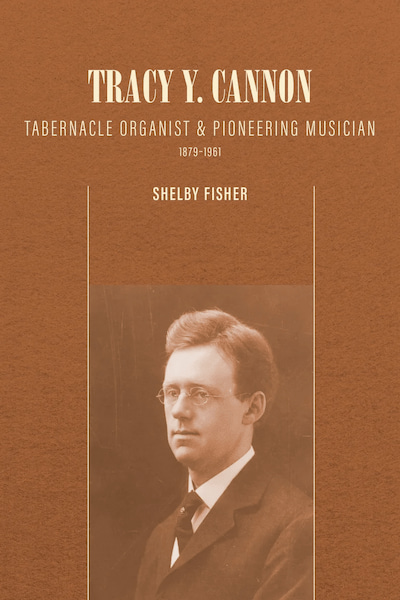
Signature Books has found a successful niche with its series of brief biographies, providing concise yet substantive introductions to key figures in Latter-day Saint history. The latest entry, Tracy Y. Cannon: Tabernacle Organist and Pioneering Musician, 1879–1961, by Shelby Fisher, is another fantastic addition. Clocking in at approximately 100 pages, it is a fast and accessible read that nevertheless manages to pack a significant punch in the information it delivers. Read More
-
•
•
7 responses
Recently I explored the writings of a Mormon literary thinker little-known among Church members today, Wayne Booth. In The Company We Keep, Booth proposes that human beings not only learn by induction and deduction, but by what he calls “coduction” — the discovery of knowledge in conversation with others. This is a cornerstone of how we are supposed to learn at Church, in our Sunday School, Priesthood and Relief Society classes. It is also a key element to how we are supposed to learn in counsels. It requires that each person in a class, or in a counsels, both listen… Read More
-
•
•
One response

I’m old enough that when thinking about teaching children my mind quickly goes to the wonderful and insightful Crosby, Stills, Nash & Young song, “Teach Your Children Well”. Most of all, the song points out an often overlooked element of teaching, that we really don’t know and can’t completely understand what our children have gone through, just as they can’t really understand us completely. So the song urges us to teach well in spite of this, feeding children on our dreams.[1] We focus on teaching children because it is so vital to their growth and because it is so important… Read More
-
•
•
13 responses
Kendall Buchanan is a Provo business owner with a wife and six kids, and a passion for religious scholarship, especially Mormonism. Visions of Glory is a side-effect of our spiritually vibrant Mormon culture. Part 1 of a three-part series discussing the book and its significance. Ever since Visions of Glory was spotted in a photo with Lori Daybell lounging by a pool, the book has taken on a villainous reputation for inspiring a string of visionary Mormon criminals residing in Utah. The 1980s gave us Mark Hoffman and the Lafferty brothers. The 2020s will be remembered for Hildebrant-Franke, the Daybells,… Read More
-
•
•
30 responses
1—To get this out of the way: There was no good answer to the question of how the Church should have responded to Nazism. There was no safe middle ground between complicit engagement, impotent resistance, and needless death. If letting missionaries train the German basketball team had a .01% chance of making war less likely, then it was worth trying. The truth of the Church’s response to Nazism is not a handful of missionaries playing basketball, but 100,000 LDS soldiers fighting in the war against the Axis powers, with 5,000 dying during the war. The lesson for today is: Don’t… Read More
-
•
•
3 responses
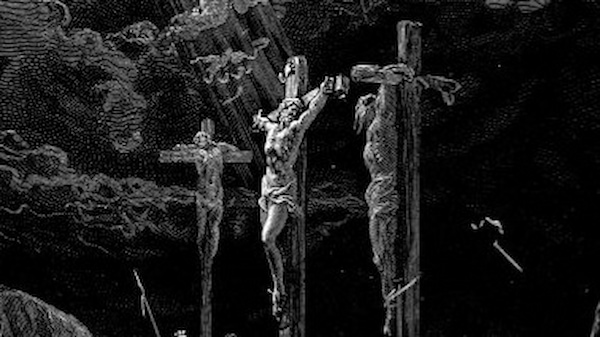
Guest post by David Metcalfe I recently saw a post on social media of two missionaries in Africa playing soccer with some local teenagers, and under the video were some normal comments like “that’s so cool!”, but then some inevitable, bizarre diatribes about how evil the church is. If you use social media, you’ve definitely seen this concept before. A normal, nice, uplifting video about the church doing a charity project or a quote about being kind to others, and somehow, there are always a few comments from someone who feels the need to write an argumentative attack against… Read More



